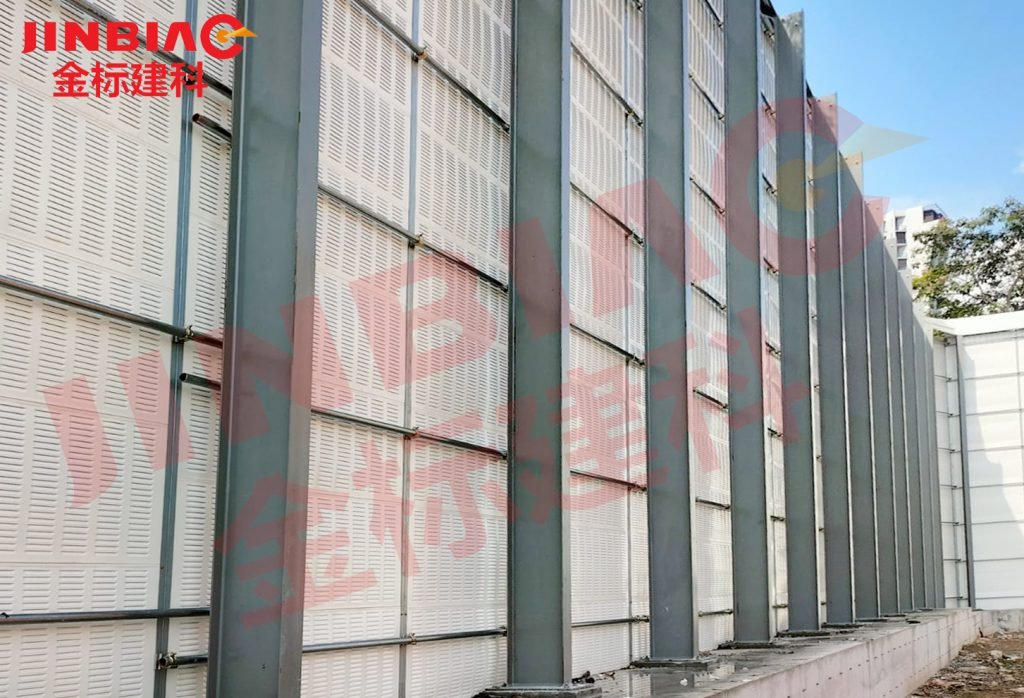
Singapore is known for its bustling cityscape, rich diversity, and excellent quality of life. However, amidst this bustling metropolis, there are various types of noise that can affect the wellbeing of individuals and communities. Noise pollution is a pervasive environmental problem that can result in a range of negative consequences, including hearing impairment, sleep disturbance, and stress. Understanding the different types of noise is crucial to mitigate their effects using sound barriers in Singapore and improve the quality of life of its citizens.
- Environmental noise from transport systems.
Environmental noise from transport systems is a common issue in highly urbanized cities like Singapore. Noise from vehicles on roads, railways, and air traffic can have a significant impact on the quality of life for residents living nearby. The World Health Organization has identified noise pollution as a serious public health issue, with exposure to excessive noise levels linked to a range of adverse health effects, including increased stress levels, sleep disturbance, and cardiovascular disease.
Noise from transport systems can also affect communication, making it difficult to hear conversations or to concentrate on work or study. In Singapore, the government has implemented various measures to mitigate the effects of environmental noise, including noise barriers, speed limits, and sound insulation for homes and buildings located near transport systems.
- Community noise from construction sites.
Construction sites can be found all over Singapore, and the sound produced by these sites can be a significant source of community noise. Construction noise can be generated by a variety of activities, including excavation, demolition, and heavy machinery operation. The noise can be particularly disruptive when construction work takes place in residential areas, where residents are often exposed to high levels of noise for extended periods of time.
This can cause stress, annoyance, and even health problems such as hearing loss and sleep disturbances. In order to minimize the impact of construction noise on communities, construction companies must abide by regulations set by the National Environment Agency (NEA) and take measures to mitigate the impact of noise on neighboring areas. These measures may include the use of noise barriers, sound insulation, and scheduling noisy activities during less sensitive hours.
- Occupational noise from work environments.
Occupational noise from work environments is one of the most common types of noise exposure in Singapore. It is a prevalent problem in industries such as construction, manufacturing, and transportation. The Occupational Safety and Health Administration (OSHA) has set permissible exposure limits (PELs) for noise levels in the workplace, which must be adhered to by employers to ensure the safety and health of their workers. Prolonged exposure to occupational noise can cause hearing loss, tinnitus, and other health-related problems.
It is essential for employers to take measures such as implementing engineering controls, providing personal protective equipment, and conducting regular noise level monitoring such as sound barriers in Singapore to prevent occupational noise exposure and protect their employees’ hearing health.
- Recreational noise from public events.
Recreational noise from public events is a common type of noise pollution in Singapore. It refers to the noise produced from recreational activities such as concerts, festivals, and sporting events that are held in public areas. These events can attract large crowds and generate high levels of noise that can be heard from far away. The noise can be a nuisance to nearby residents and may disrupt their daily activities, such as sleep or work.
To address this issue, the National Environment Agency (NEA) has established guidelines for outdoor events to ensure that the noise levels are within acceptable limits. Event organizers are required to obtain a permit from the NEA and comply with the noise regulations to minimize the impact of recreational noise on the surrounding community.
- Residential noise from neighbors.
Excessive noise from neighbors is a common source of disturbance in residential areas in Singapore. Noise from neighbors can come in many forms, such as loud music, slamming doors, shouting, and even footsteps. This type of noise pollution can be particularly frustrating, as it is often beyond our control.
In Singapore, residential noise from neighbors is considered a form of environmental noise and is regulated under the Environmental Protection and Management Act (EPMA). The EPMA sets out guidelines for noise levels that must be adhered to in residential areas, and individuals who violate these guidelines may be subject to legal action. It is important for residents to be aware of the impact that their activities may have on their neighbors and to take steps to minimize noise pollution in order to maintain a harmonious community.
Hebei Jinbiao is a leading company in Noise Barrier products and Fencing products in Singapore. We guarantee to provide you with the most high-quality Sound Barrier and Fencing products along with our dedicated assistance. Do not hesitate to contact us. We are looking forward to helping you solve your noise issues, safety issues and protecting you from noise pollution as well as ensuring your safety.
